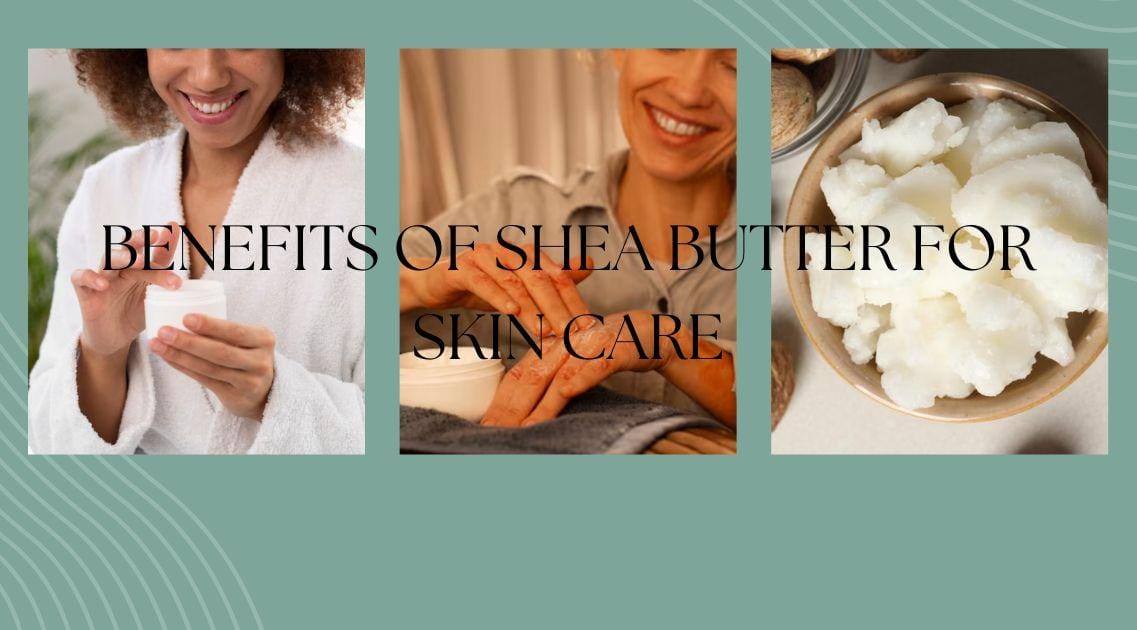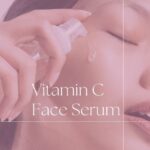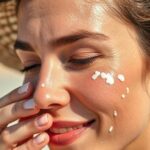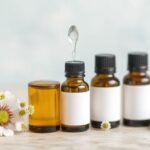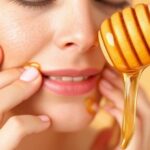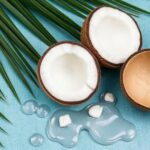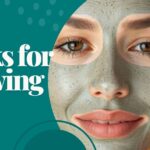Explain to your readers what natural skincare is all about and why shea butter is an essential component. Talk about how its rich nutritional profile has allowed it to be utilized as a multipurpose skin care product for generations.
Inspire interest by hinting at the many advantages they will learn about in the post.
Shea butter, for instance, is nature’s solution to glowing, healthy skin. For years, this buttery sweetness has been a mainstay of beauty regimens because of its deep moisturizing and restorative qualities.
But why does this butter work so well? Let’s explore its main advantages for skin care.
What is Shea Butter?
Describe the history of shea butter to readers so they may appreciate its genuineness and worth. Originating from the nuts of the African shea tree, it is typically made by hand to preserve its inherent sweetness.
Emphasize its important ingredients, including antioxidants, vital fatty acids, and vitamins A and E, which contribute to its many health benefits.
Unrefined, nutrient-dense, and ideal for skin care is raw shea butter.
Processed to give it a smoother texture, refined butter may lose some of its benefits.
1. Deep Moisturization
Describe how shea butter locks in moisture without blocking pores by deeply penetrating the skin.
Even the driest skin is nourished by its substantial fatty acid content (oleic, stearic, and linoleic acids), which makes it a great natural substitute for moisturizers that are loaded with chemicals.
All skin types, including combination, dry, and oily skin, can use it.
2. Anti-Inflammatory Properties
Describe how Shea butter is perfect for those with rosacea, acne, and eczema since it calms sensitive skin and lessens redness. One important anti-inflammatory component of shea butter is cinnamic acid.
Consistent application helps balance out skin tone and soothe flare-ups.
3. Healing and Soothing Skin
Pay attention to how shea butter may treat wounds, including burns, scars, and bug bites. Its inherent emollient qualities speed up the healing process and restore damaged skin.
Perfect for improving smoothness and repairing the skin’s protective layer.
4. Anti-Aging Effects
Talk about how Shea Butter encourages the creation of collagen, which is necessary for skin that is lush and young. Emphasize how it may gradually reduce wrinkles, age spots, and fine lines.
The skin is shielded from free radical damage by the high concentration of antioxidants, such as vitamins A and E.
5. Gentle on Sensitive Skin
Emphasize the benefits of shea butter for newborns and other delicate skin types. It doesn’t irritate or clog pores because it is hypoallergenic and non-comedogenic.
Excellent for people with severely sensitive skin or allergies.
6. Natural Sun Protection
Describe how the cinnamic acid in shea butter gives it a minor level of UV protection. Although it cannot take the place of sunscreen, it can enhance SPF products by giving the skin an additional layer of protection.
Guards against environmental stresses including pollution and sun damage.
How to Use Shea Butter in Your Skincare Routine
Give helpful advice on how to include shea butter in everyday activities:
After cleaning, use raw shea butter straight to the skin as a moisturizer.
Use as a thick, nourishing night cream for overnight therapy.
DIY Recipes: Provide easy recipes such as a shea-lavender lip balm or whipped Shea Butter body butter.
Choosing the Right Butter
Explain falsehoods like:
The myth is that shea butter closes pores.
It is not comedogenic, meaning it won’t lead to acne.
Shea butter is overly oily, according to a myth.
Fact: When applied properly, it absorbs rapidly.
Is shea butter good for the face?
Yes, Shea butter’s hydrating and anti-inflammatory qualities make it beneficial for the face. Patch testing is the best course of action because it may block pores for certain people.
Is it OK to use shea butter every day?
Yes, using shea butter daily is generally okay, especially if you have dry or normal skin. Thanks to its nourishing and moisturizing qualities, your skin can stay moisturized and healthy. On the other hand, everyday usage may clog pores and result in breakouts if you have oily or acne-prone skin. Starting with a patch test to observe how your skin responds is always a smart idea.
Can I leave shea butter on my face overnight?
Yes, Shea butter is safe to apply on your face overnight. As you sleep, it might give you profound nutrition and hydration. To be sure it won’t clog your pores or result in outbreaks, patch test first.
Can I leave shea butter on my face overnight?
Yes, shea butter may be applied to your face overnight to provide deep nutrition and moisture. Just be careful to patch test beforehand to prevent any possible problems.
Can shea butter remove dark?
When used regularly, shea butter can help lessen the appearance of hyperpigmentation and dark patches. The outcomes are not fixed.
Does shea butter remove tan?
Shea butter nourishes and moisturizes the skin, encouraging skin regeneration and gradually lessening the appearance of a tan. However, it might not be enough to eliminate a tan entirely.
Does shea butter tighten skin?
Shea butter can help improve skin elasticity, which may contribute to a firmer appearance. However, it may not significantly tighten skin on its own.
Can we use shea butter in summer?
Absolutely! Shea butter is a flexible and useful ingredient that may be utilized throughout the year, especially in the summer. Here are a few reasons why shea butter is ideal for summer use:
